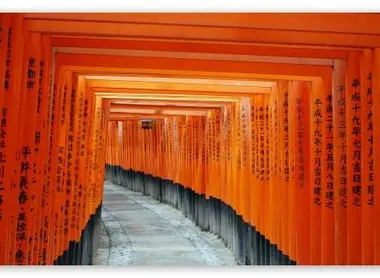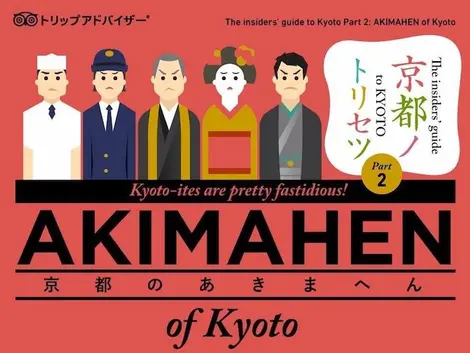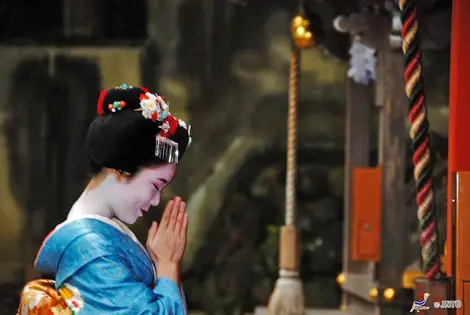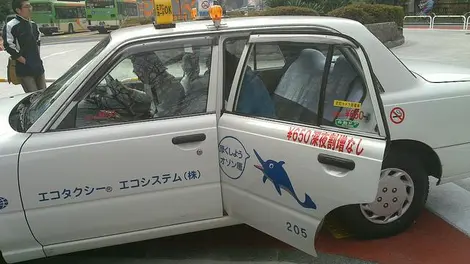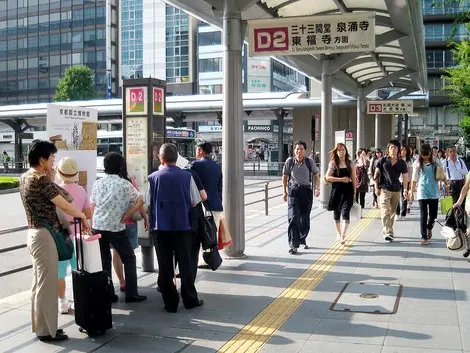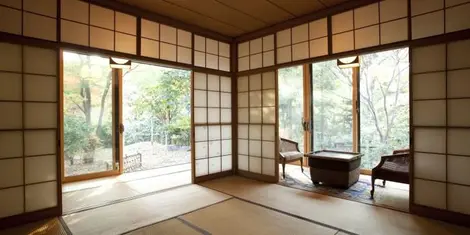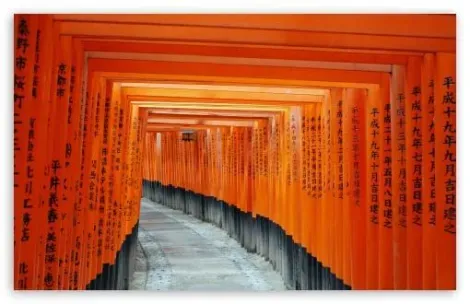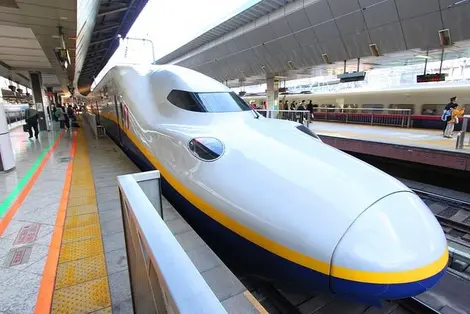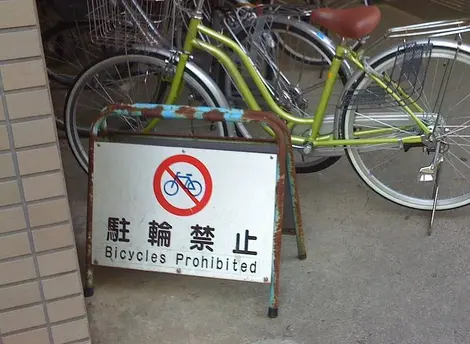Akimahen: the guide to good manners in Kyoto 京都のあきまへん
When in Kyoto...
In Kyoto, there are rules to be respected. The city publishes a guide to good behavior for travelers on its website, a mixture of common sense and explanations of Japanese culture. It contains tips for avoiding trouble or embarrassmenr in the old imperial capital, and all over Japan.
"Akimahen!" In kansai-ben (Kansai dialect), means "Forbidden!" This is the title of the document that the Kyoto City Council publishes for travelers who visit the city and who may not understand much about the customs of Japan. The subtitle, "Kyoto-ites are pretty fastidious!" sets the tone. Inside, there is a set of 19 polite tips and other rules that should be followed. Here they are:
Japanese propriety
- Do NOT bother the maiko
When passing a maiko, or apprentice geisha, in the neighborhood of Gion in particular, it's tempting to want to stop and take a picture of them in their kimono. But be careful not to bother, embarrass her or jostle her. The maiko are very busy women and often do not have the time to stop and take pictures with tourists.
Read also: What is a geisha?
- Let the door of a taxi open by itself
It opens automatically! Be careful to stand away from the car when it arrives, to leave enough space for the door to open.
- Line up in a row
While waiting for the train, the subway or at the checkout of a shop, the Japanese always queue in perfectly organised lines, calmly and with discipline. Follow their lead!
- Do NOT touch old buildings or objects
Often made of wood, these old Japanese houses and other national treasures can be affected by constant touching.
Rules of etiquette
- Say "okini" rather than giving a tip
The Western traveler, impressed by Japanese hospitality and respect, is often tempted to thank their waiter at a restaurant with a monetary tip. This isn't appreciated in Japan. In Kyoto, a simple polite phrase, "okini" ("thank you" in kansai-ben ) is enough to convey your gratitude.
Read also: Japanese table manners
- Take off your shoes before entering
The Japanese interior is sacred. Before putting your feet on the tatami mats, do not forget to take off your shoes or slippers. The Japanese have a fear of impurities coming from outside.
- Do NOT bring your own food to a restaurant
Rude in the West too, bringing food is similarly frowned upon in Japan.
- Do NOT cancel a reservation at the last minute
It is frowned upon to cancel a restaurant reservation at the last minute, or not to let them know at all.
- Give up your seat on public transport
It is polite to offer a seat to elderly people, pregnant women, people with disabilities or those accompanied by a toddler.
- Keep toilets clean
Another common sense rule is to leave the toilets as clean as you found them.
- Leave room when walking in the street
The streets of Kyoto are sometimes narrow, but be sure to leave some space at your side to allow others to move past.
Respect in temples and shrines
- Stay silent and respectful
Treat these places of spirituality with calm and respect, especially for religious personnel.
- Remove your cap and sunglasses
In the same way as when visiting churches and other religious monuments, this is a common sense rule.
- Do NOT take pictures when it's clearly forbidden
In some parts of temples and shrines, it is forbidden to take pictures or use the flash of your device, so please respect this rule.
For your safety
- Do NOT take pictures near the rails
Japanese trains, especially the Shinkansen, fascinate foreign travelers. However, avoid getting too close to the edge of the platform to take pictures, especially at Fushimi-Inari station or on the Keihan line.
Fineable offences
- Do NOT smoke outdoors
While in the West, it is forbidden to smoke in certain public places, in Kyoto and in Japan the ban covers the streets too! Smoking outside of authorized areas incurs a 1,000 yen fine.
- Do NOT leave your bike on the street
If you leave your bike out of an area designated for this purpose, it will be removed and you risk a fine of 2,300 yen. If it is a rental bike, the return of the bike is also your responsibility.
- Do NOT throw your garbage anywhere
Kyoto aims to be the cleanest city in the world. Throwing garbage in the street or on tourist sites will land you a 30,000 yen fine!
- Do NOT ride your bike while drunk
Riding your bike while over the legal alcohol limit will result in a 1 million yen fine (about $8,800), or five years in prison. The crime is taken extremely seriously in Kyoto.
Finally, learn this phrase: "Gou ni ireba, gou ni shitagae", the Japanese equivalent of "When in Rome, do as the Romans do"!






